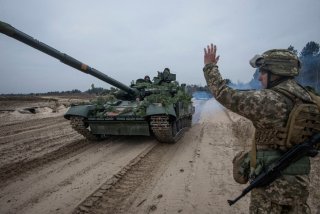Will Tensions in Ukraine Boil Over?
The Ukrainian escalations of the last week, together with Russia’s recognition of the Donetsk and Luhansk People’s Republics and its movement of forces into their territories, advance the conflict to a new level.
Well before the recent escalation in artillery and mortar strikes, Russia said that it would not allow Ukraine to conduct an operation like that which Azerbaijan undertook in 2020, or which Croatia mounted in 1995, which in the present context would produce lots of people killed and huge numbers of people displaced. Even if the fallout to civilians were limited, the United States and the West would still be supporting the imposition upon these people of rulers whom they distrust and fear. Putin’s use of “genocide” is an overstatement, but remember that William Walker, the U.S. diplomat who headed the Kosovo Verification Mission, deemed the discovery of forty-five dead Kosovars in 1999 to be evidence of the same and to justify U.S. intervention in Serbia.
The combined population of Crimea and the two statelets is about 6 million; the displacement of one-third to a half of these people, uprooted from their homes and forced into exile, would be a very big deal to them, but not of course to the West, for whom six million people seems not to be a big number at all. The truth is that the men and women of these territories, Crimea included, hate the idea of being ruled by Kyiv. We have come to learn, however, that the entire fabric of world order depends on denying to them the right to choose their own country.
David C. Hendrickson is President of the John Quincy Adams Society and the author of Republic in Peril: American Empire and the Liberal Tradition (Oxford, 2018).
Image: Reuters.

